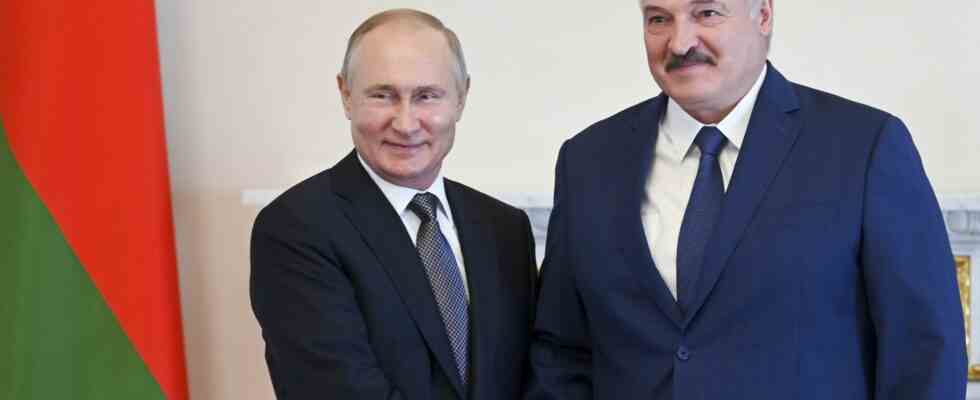Status: 10/15/2022 4:59 am
Concerns about the spread of the Ukraine war are growing in Poland. After the announcement by the Belarusian ruler Lukashenko of a joint army unit with Russia, Warsaw has now sharply criticized it.
Military exercises of the Ukrainian armed forces in the border area with Belarus. Footage shared by the Reuters and AP news agencies shows Ukrainian soldiers preparing for a possible attack from the north.
The danger is real, says the commander of the Ukrainian units, Serhiy Naev. After all, Belarus is an ally of Russia in this aggression against Ukraine. “We anticipate a full spectrum of threats and are doing everything we can to ensure that these threats do not become a reality.”
Lukashenko announces Russian-Belarusian army unit
Just a few days ago, Lukashenko announced that he would set up a joint Russian-Belarusian army unit. He justified this with the aggravation of the situation on the western border of Belarus. The construction of the joint military force has already begun, said Lukashenko at a meeting with senior military officials in his country. Should the situation deteriorate, the unit will intervene.
The military leadership of NATO and some European countries are openly considering the possibility of aggression towards our country, up to and including a nuclear strike. Through unofficial channels we were warned that an attack was planned on our territory, along the lines of the Crimean Bridge attack.
In Poland, too, there is growing concern that the war will spread westward. Polish Deputy Foreign Minister Marcin Przydacz told Polish television channel TVP that the West must do everything it can to prevent Belarus from directly entering the war against Ukraine.
Lukashenko has launched various actions on the border with Ukraine in order to draw parts of the Ukrainian armed forces to the border with Belarus so that they are absent from the southern front. Western countries should make the Belarusian government understand very clearly what the consequences would be if Belarus actively participated in this war.
Opposition leader doubts direct intervention
However, opposition leader Sviatlana Tichanovskaya, who lives in exile, considers a direct intervention by the Belarusian armed forces to be unlikely. Her country’s army is not ready for this, Tichanovskaya said in a speech in the European Parliament this week.
I doubt that Belarusian soldiers would take part in this war. But Lukashenko is building up a threat, he speaks of a threat from Ukraine, from enemies from outside, and speaks of Belarus having to defend itself. But the people of Belarus understand very well that there is no danger from Poland or Lithuania or from any other democratic country in Europe. Lukashenko only fulfills the wish of his master, Putin.
At the beginning of the Russian attack on Ukraine in February, Russian soldiers entered Ukraine from Belarus and advanced to the outskirts of Kyiv. Should Russian soldiers be transferred to Belarus again, Tichanovskaya said at the “Warsaw Security Forum” in the Polish capital earlier this month, there would be resistance in Belarus.
There are signs that Russian troops are once again being transferred to Belarus. Our partisans are already preparing for this eventuality, even if such acts of sabotage carry the death penalty. But it’s also about our future. Without a free Ukraine there will be no free Belarus. Therefore, it is our duty not only to fight our regime, but also to help Ukraine.
EU training mission for Ukrainian armed forces
Yesterday the EU states agreed on a training mission for the Ukrainian armed forces. The Permanent Representatives Committee of the 27 member states approved plans for a training program for around 15,000 soldiers.
The formal confirmation is to take place on Monday at a meeting of foreign ministers in Luxembourg. In order to minimize the risk of Russia attacking the training mission, the training will not be organized in Ukraine, but in Poland and Germany, among others.

